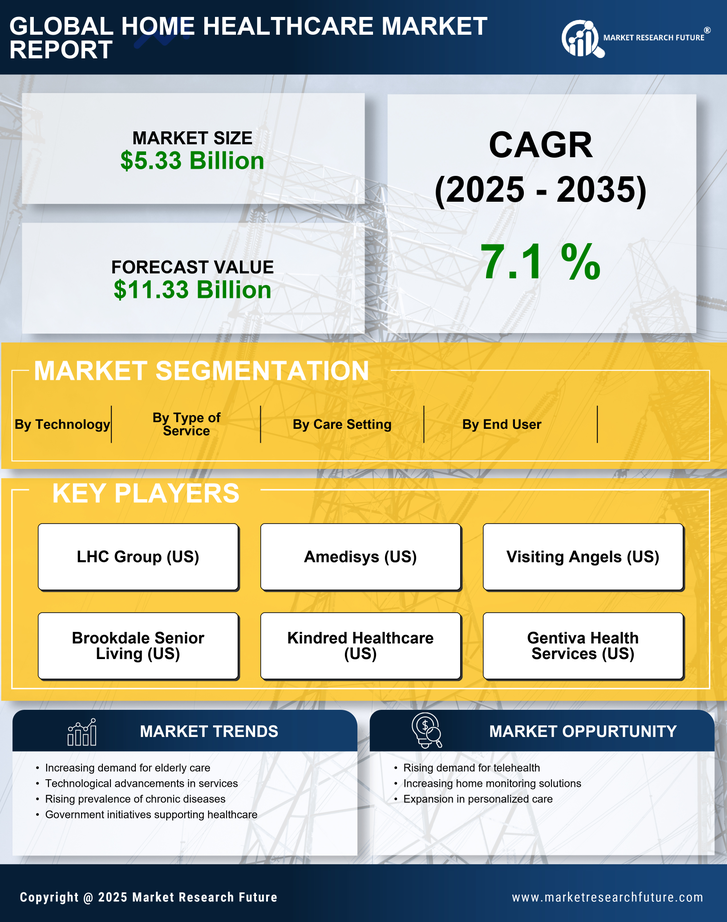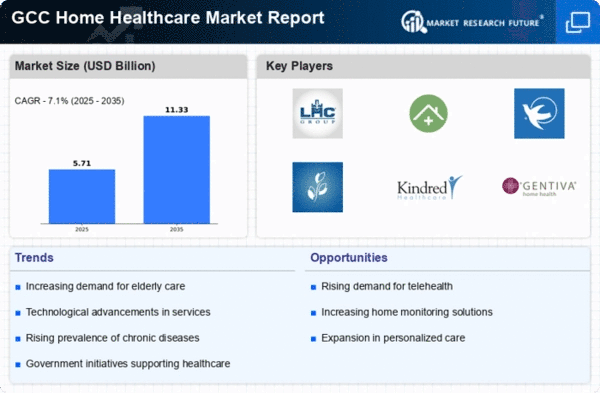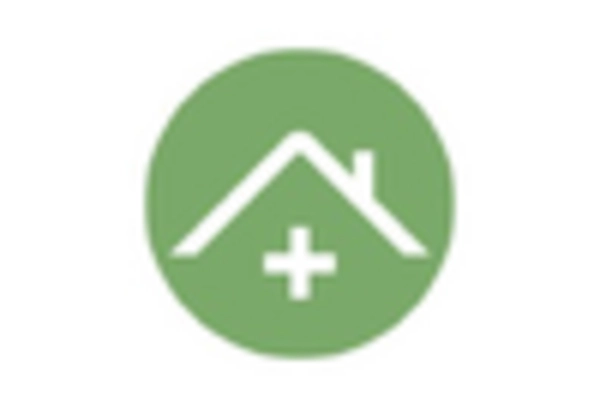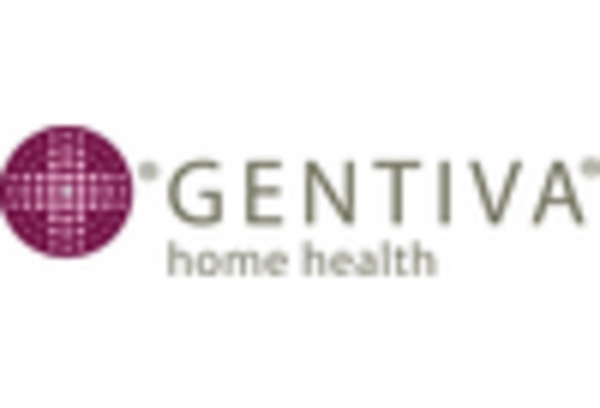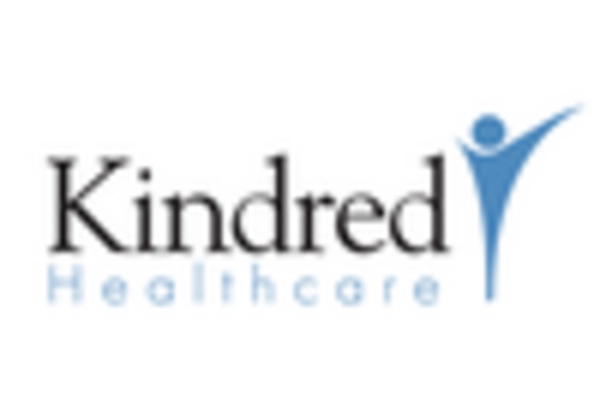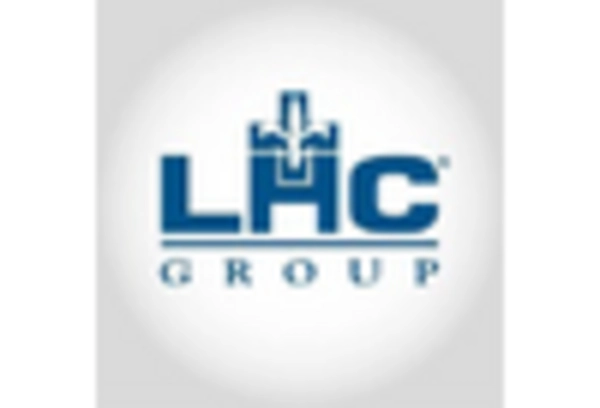Government Initiatives and Funding
Government initiatives aimed at improving healthcare access and quality are significantly influencing the home healthcare market in the GCC. Various national health strategies are being implemented to promote home-based care, which is often seen as a cost-effective alternative to traditional healthcare settings. For example, funding programs and incentives for home healthcare providers are being introduced to encourage the development of services that cater to the elderly and those with disabilities. This support is crucial, as it not only enhances service availability but also fosters innovation within the home healthcare market. The financial backing from governments is expected to stimulate growth, potentially increasing the market size by 20% over the next few years.
Shift Towards Patient-Centric Care Models
There is a noticeable shift towards patient-centric care models within the home healthcare market in the GCC. This approach emphasizes the importance of tailoring healthcare services to meet individual patient needs and preferences. As patients increasingly seek more control over their healthcare decisions, providers are adapting their services to offer personalized care plans. This trend is likely to enhance patient satisfaction and adherence to treatment regimens, ultimately leading to better health outcomes. The home healthcare market is expected to benefit from this paradigm shift, as more patients opt for home-based care solutions that align with their lifestyle and preferences, potentially increasing market demand by 10% in the coming years.
Rising Demand for Chronic Disease Management
The increasing prevalence of chronic diseases in the GCC region is driving the home healthcare market. With conditions such as diabetes, hypertension, and cardiovascular diseases affecting a significant portion of the population, there is a growing need for effective management solutions. It is estimated that around 30% of adults in the GCC suffer from at least one chronic condition. This trend necessitates the provision of home healthcare services that can offer personalized care, monitoring, and support. As healthcare systems strive to reduce hospital admissions and improve patient outcomes, the home healthcare market is positioned to expand rapidly, catering to the needs of patients requiring ongoing care in the comfort of their homes.
Increasing Awareness of Home Healthcare Benefits
The growing awareness of the benefits associated with home healthcare is driving interest in the market within the GCC. As more individuals and families recognize the advantages of receiving care at home, such as comfort, convenience, and reduced healthcare costs, the demand for home healthcare services is likely to rise. Educational campaigns and outreach programs are playing a crucial role in informing the public about the various services available, including nursing care, physical therapy, and rehabilitation. This heightened awareness is expected to contribute to a robust growth trajectory for the home healthcare market, with estimates suggesting an increase in market penetration of approximately 12% over the next few years.
Technological Advancements in Healthcare Delivery
Innovations in technology are reshaping the home healthcare market in the GCC. The integration of telehealth services, remote monitoring devices, and mobile health applications is enhancing the accessibility and efficiency of healthcare delivery. For instance, the use of wearable devices that track vital signs allows healthcare providers to monitor patients remotely, reducing the need for frequent in-person visits. This technological shift is expected to increase the market's value, with projections indicating a growth rate of approximately 15% annually over the next five years. As technology continues to evolve, it is likely to play a pivotal role in improving patient engagement and satisfaction within the home healthcare market.
